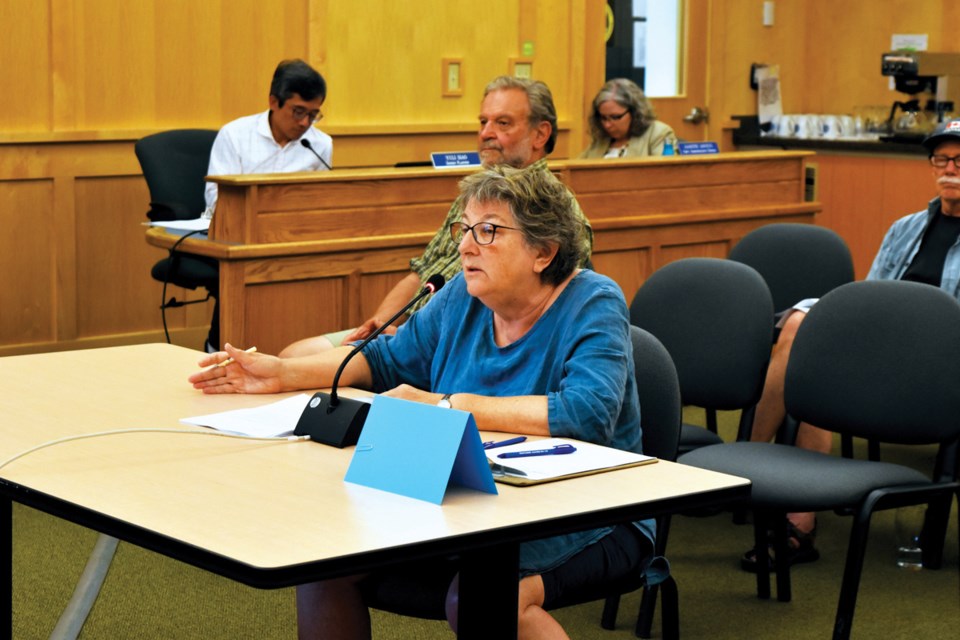While several residents spoke in opposition to increased density in their neighbourhoods, one former Sunshine Coast Regional District (SCRD) director offered another option for promoting affordable housing through density at a public hearing on July 23.
About a dozen residents attended the hearing about proposed amendments to SCRD Official Community Plan (OCP) bylaws for Halfmoon Bay, Roberts Creek, Elphinstone and West Howe Sound.
The amendments are intended to encourage affordable housing by making it easier to increase density. “Based on the concept of sharing space, sharing a building, sharing utilities, amenities, the cost for housing per unit, it will be less,” senior planner Yuli Siao said at the hearing.
The focus of the policies will be on densification in community hubs, such as Langdale, the village centre in Roberts Creek and a number of community hubs in Halfmoon Bay and Elphinstone, in addition to encouraging infill. For example, any parcel larger than 2,000 sq. metres is permitted to have an auxiliary dwelling. “Currently there is a considerable number of those lots available, but only a few of them already have a second dwelling or auxiliary dwelling, so there is a substantial potential,” said Siao. Several of the changes are already included in OCPs, but would be stated uniformly across OCPs to create consistency. The purpose, said Siao, is to “strengthen what is already there.”
Several Halfmoon Bay residents voiced their concern that the policies would override the intent of the OCP and detract from the community’s rural character. Stephen McLaren said that since 90 per cent of parcels in all electoral areas that are eligible to have a secondary dwelling do not, changes to the OCP aren’t needed. “The Halfmoon Bay OCP, if you had to distil it down to its essence, it basically says low density,” he said.
Another Halfmoon Bay resident agreed after acknowledging the need for affordable housing. “[Low density] needs to still be part of the community plan because the community put it there because we value it,” she said.
Submitted feedback included questions about the link between densification and affordability, concern over the impact density will have on the regional water supply, concerns over impacts on roads, parking, landfill and the environment, how increased density will affect property values and inconsistencies with the Local Government Act regarding growth strategies.
At the hearing, former Roberts Creek director Donna Shugar suggested moving away from language that equates “increased building opportunity with subdivision.”
Shugar said there are other ways to create new housing and lots without subdividing, while maintaining density requirements and community character.
“This would also provide opportunities for clustering and saving of green space, shared infrastructure such as outbuildings, shared gardens, and it would also enable adult children to build on family property, encouraging young families to remain on the Coast,” she said.
In 2017, SCRD began researching changes and hosted three public information meetings about the policy changes, as well as the impact of short-term rentals. The OCP bylaws received second reading in June.
Following the July 23 public hearing, directors cannot receive feedback from the public until the bylaw comes before the board for third reading.



